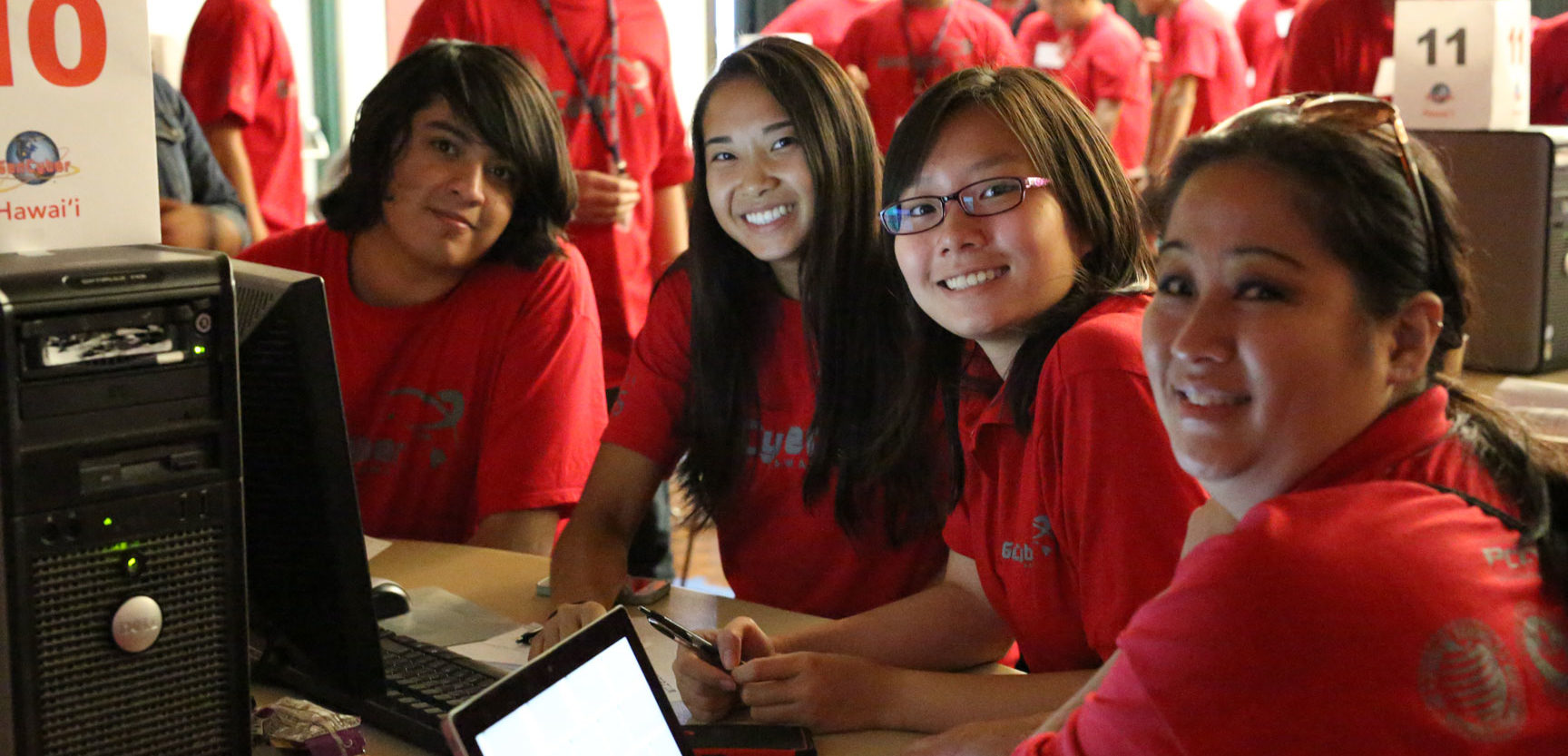Innovation Hubs
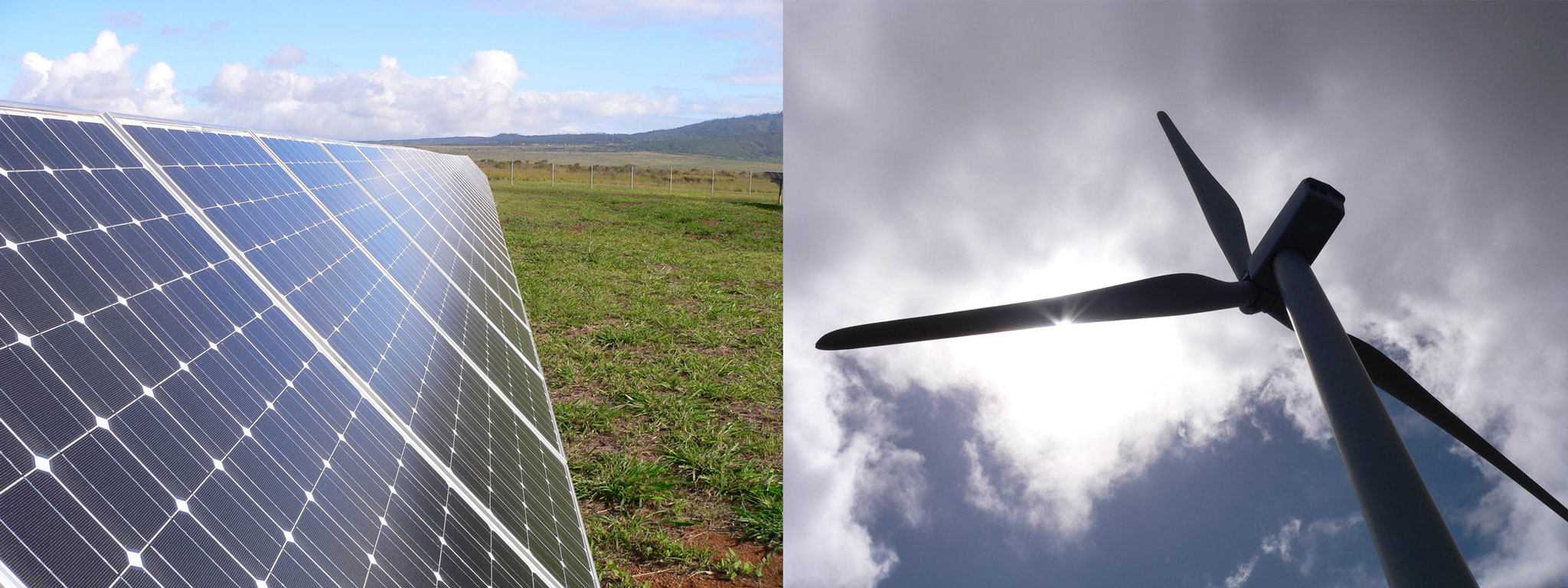
Guiding Principles
- The UH System sets the overall vision for research and innovation and provides the tools, policies and processes for the campuses to achieve their missions.
- The individual campuses should be responsible for implementing actionable plans toward the strategic goals that are compatible with their unique strengths, capabilities, aspirations and metrics.
- The campuses should collaborate with each other, government, business and industry in implementing their plans for the betterment of Hawai‘i, the nation and the world.
Core Elements
- Five priority innovation hubs to nurture prosperity and broaden social impact
- The innovation workforce
- A dynamic innovation and entrepreneurship ecosystem
- Strengthening the UH research enterprise
Priority Innovation Hubs
To utilize on its existing strengths and capabilities and to capitalize on emerging opportunities, UH should continue to explore new avenues to better leverage its location and existing talent in ocean sciences, astronomy, energy, sustainable agriculture, health sciences, digital/creative media, data intensive sciences and engineering. These areas were identified as national science and technology funding priorities in which the extramural funding growth is occurring. In some cases, strategic hires will be necessary to address critical gaps to participate in these areas.
Based on the rationale listed in the previous paragraph, below are five innovation hubs that the campuses should consider. In the future, additional hub areas may be identified as opportune in response to regional, national and/or international developments.
It should be noted that UH’s focus on these hubs will not reduce its commitment to supporting faculty research in other disciplines – especially on research that address Hawai‘i-related challenges, opportunities and needs. Such research will benefit from efforts to strengthen the research enterprise overall.
HUB: Ocean and Climate Sciences
As an island community that depends on its climate and environment for tourism, and the ocean for food and recreation, research and outreach on problems such as coral bleaching, coastal erosion, sea level rise, rainfall prediction, fisheries management and invasive species management will continue to be high priority areas. The University of Hawai‘i will continue to enhance humankind’s understanding of the issues and uncover possible solutions by:
- Studying relevant microbes and their role in the ecosystem process. Since microbes perform important functions such as producing and consuming greenhouse gases and composing the base of the marine food web, understanding how they work could provide insight on how to mitigate climate change and preserve the food chain.
- Utilizing inter-disciplinary collaboration and indigenous knowledge to advance conservation biology research on environmental stressors and how animals, plants and microbes adapt.
This could provide future generations with the understanding necessary to effectively manage Hawai‘i’s fragile natural resources. - Continuing efforts in management-driven research and outreach to tackle problems such as marine debris, marine resource usage and catastrophic event response.
- Expanding research in climate change issues of particular interest and immediacy to the Pacific Region.
PHOTO: Jaymi Nakashima
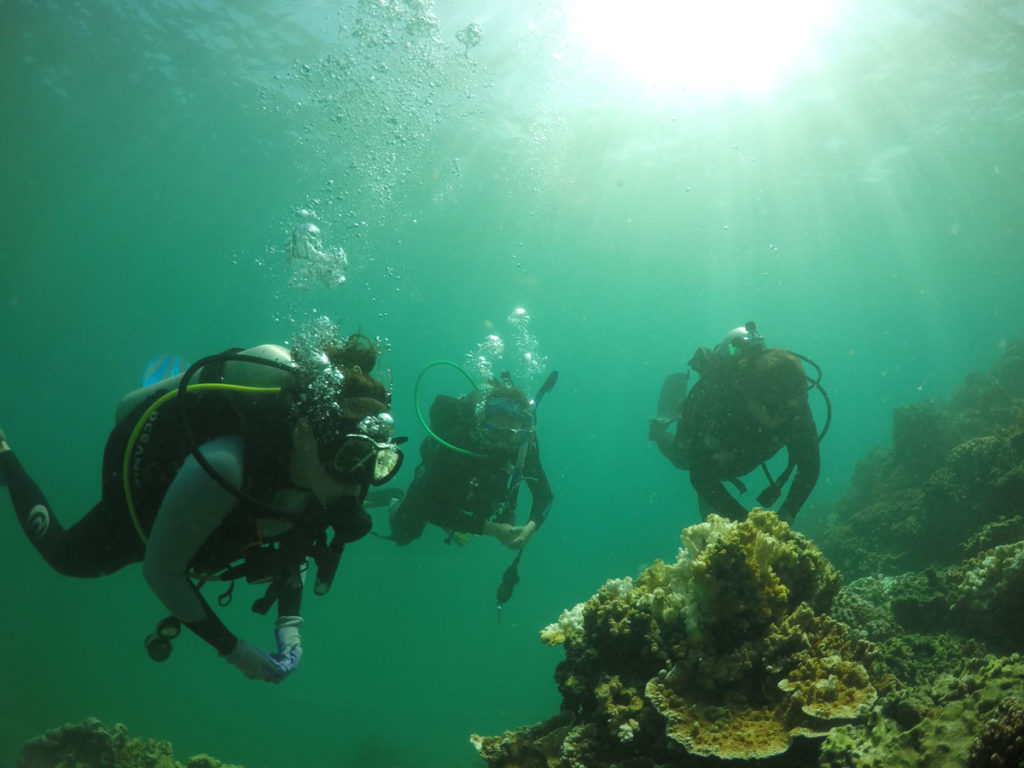
HUB: Ocean and Climate Sciences
As an island community that depends on its climate and environment for tourism, and the ocean for food and recreation, research and outreach on problems such as coral bleaching, coastal erosion, sea level rise, rainfall prediction, fisheries management and invasive species management will continue to be high priority areas. The University of Hawai‘i will continue to enhance humankind’s understanding of the issues and uncover possible solutions by:
- Studying relevant microbes and their role in the ecosystem process. Since microbes perform important functions such as producing and consuming greenhouse gases and composing the base of the marine food web, understanding how they work could provide insight on how to mitigate climate change and preserve the food chain.
- Utilizing inter-disciplinary collaboration and indigenous knowledge to advance conservation biology research on environmental stressors and how animals, plants and microbes adapt.
This could provide future generations with the understanding necessary to effectively manage Hawai‘i’s fragile natural resources. - Continuing efforts in management-driven research and outreach to tackle problems such as marine debris, marine resource usage and catastrophic event response.
- Expanding research in climate change issues of particular interest and immediacy to the Pacific Region.
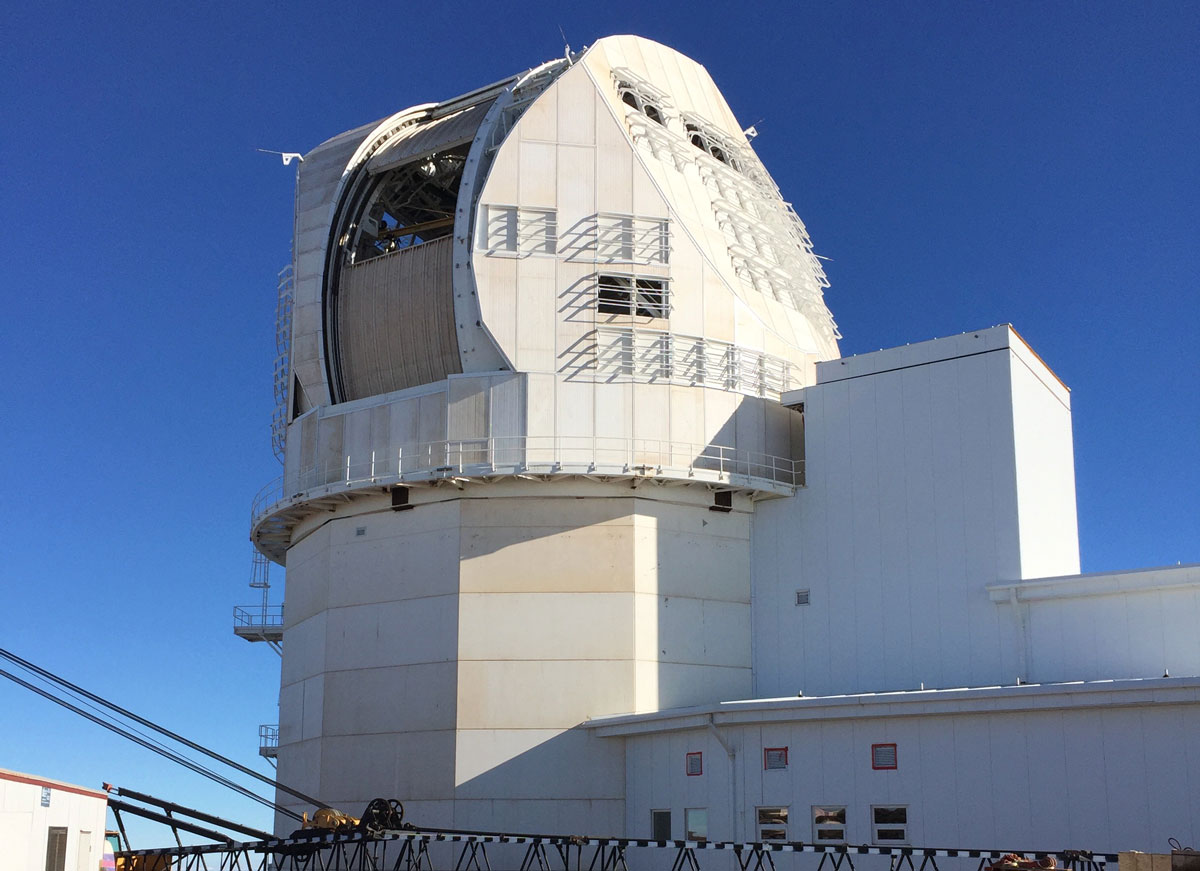
HUB: Astronomy
Hawai‘i is an ideal site for astronomical research due to the high altitude and dryness of its observing sites and its unique geological features which make it ideal for planning manned and unmanned missions to the Moon, Mars and beyond. The University of Hawai‘i will strive to elevate its standing in the astronomical community and bring benefits to the state and the world by expanding and strengthening research in:
- Solar astronomy, which is important in predicting and utilizing precautions to manage disruptions to power grids and communications caused by solar flares.
- Panoramic surveying, which is relevant to many different science areas such as asteroids and cosmology. It is as equally important in tracking near-earth objects and space debris whose deteriorating orbits could pose threats to life and property.
- Instrumentation/adaptive optics, which has application in a variety of disciplines or applications outside astronomy where remote monitoring and image stabilization/ corrections are required.
- Stewardship by building relationships and coordinating with kūpuna, the local community, state agencies, and other key stakeholders to protect and maintain cultural, educational, environmental and recreational uses of the mountain summits.
HUB: Health and Wellness
Geographic isolation makes Hawai‘i particularly sensitive to changes in the availability, as well as the quality, of healthcare. In addition, Hawai‘i’s popularity as a tourist destination and status as a key military asset make it a vector for infectious disease and other potential health issues.
The University of Hawai‘i is committed to research and service toward the improvement of the health and wellness of the Hawai‘i community – especially in Native Hawaiians, Pacific Islanders, the rural community and its diverse multi-ethnic population. The University of Hawai‘i will advance healthcare research by:
- Utilizing knowledge of ethnic/racial differences in phenomena such as cancer incidence (e.g., higher rate of breast and colorectal cancer than the national average)
to open avenues for Hawai‘i’s multi-ethnic population to gain benefits from clinical research such as clinical trials, new diagnostic tests and interventions. This advantage could also lead to participation in future therapies such as personalized precision medicine. - Expanding and strengthening research into heart disease, diabetes and other health problems that affect the local community and the Pacific Region.
- Expanding research and knowledge of the unique socio-cultural factors in Hawai‘i’s multi-ethnic communities and families that promote well-being, good nutrition and health.
- Advancing natural products research into potential drugs for treating various diseases or afflictions such as heart disease or cancer.
- Advancing knowledge of infectious diseases, such as mosquito-borne viruses, and the means of mitigating their spread and vaccinating against them.
Bruce Shiramizu, MD, ECHO clinical trials Principal Investigator
PHOTO: JABSOM
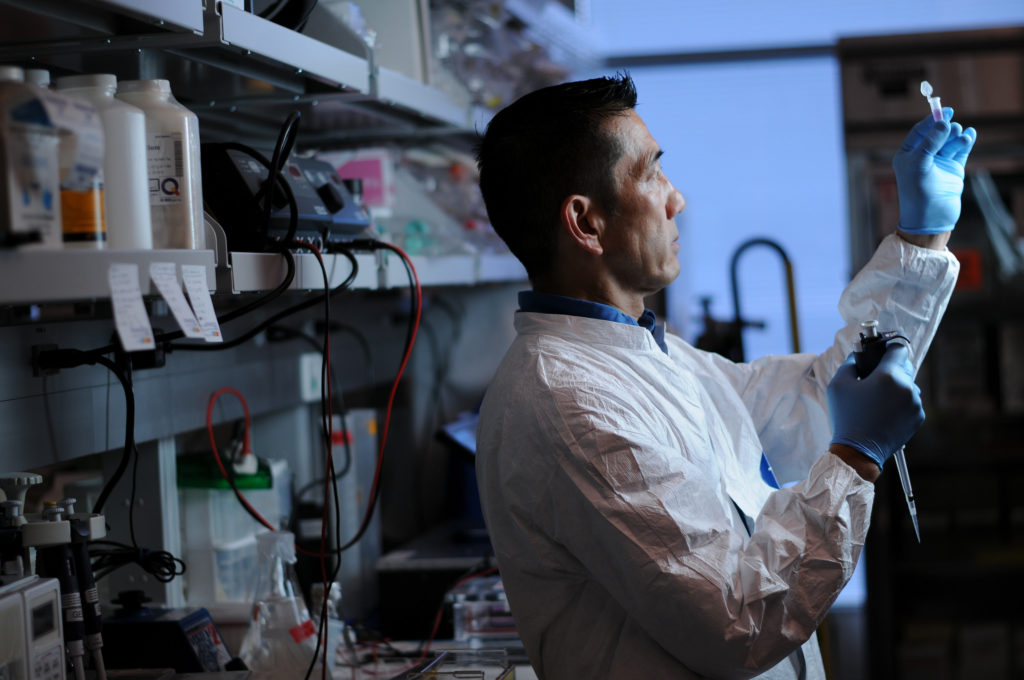
Bruce Shiramizu, MD, ECHO clinical trials Principal Investigator
PHOTO: JABSOM
HUB: Health and Wellness
Geographic isolation makes Hawai‘i particularly sensitive to changes in the availability, as well as the quality, of healthcare. In addition, Hawai‘i’s popularity as a tourist destination and status as a key military asset make it a vector for infectious disease and other potential health issues.
The University of Hawai‘i is committed to research and service toward the improvement of the health and wellness of the Hawai‘i community – especially in Native Hawaiians, Pacific Islanders, the rural community and its diverse multi-ethnic population. The University of Hawai‘i will advance healthcare research by:
- Utilizing knowledge of ethnic/racial differences in phenomena such as cancer incidence (e.g., higher rate of breast and colorectal cancer than the national average)
to open avenues for Hawai‘i’s multi-ethnic population to gain benefits from clinical research such as clinical trials, new diagnostic tests and interventions. This advantage could also lead to participation in future therapies such as personalized precision medicine. - Expanding and strengthening research into heart disease, diabetes and other health problems that affect the local community and the Pacific Region.
- Expanding research and knowledge of the unique socio-cultural factors in Hawai‘i’s multi-ethnic communities and families that promote well-being, good nutrition and health.
- Advancing natural products research into potential drugs for treating various diseases or afflictions such as heart disease or cancer.
- Advancing knowledge of infectious diseases, such as mosquito-borne viruses, and the means of mitigating their spread and vaccinating against them.
Jason Leigh, Professor/Director,
Laboratory for Advanced Visualization
and Applications (LAVA), UH Mānoa
HUB: Digital Economy and Civil Infrastructure Security
The ability to process and move large quantities of data securely across global networks and to create, manipulate and present content will play a vital role in Hawai‘i’s economy and way of life. The University of Hawai‘i can take the lead in many of these efforts, including:
- Utilizing data visualization to manage, manipulate and interpret large data sets in various scientific disciplines as well as towards simulation and game development.
- Engaging in cybersecurity research, training and workforce development to prevent and mitigate cyber attacks against critical systems in a variety of industries.
- Guiding the expansion of Hawai‘i’s computing capabilities and global connectivity through research in high performance computing.
- Engaging in research to improve the strength and resiliency of digital networks which prevent and mitigate disruption of critical communication and civil infrastructure systems.
- Expanding and coordinating programs in digital and creative media production, which could help diversify Hawai‘i’s economy by empowering its citizens to create, manipulate and present digital content.
- Continuing training and research in disaster preparedness, including better ways to track and minimize the impact of natural and man-made threats, as well as the handling of post-disaster recovery efforts.
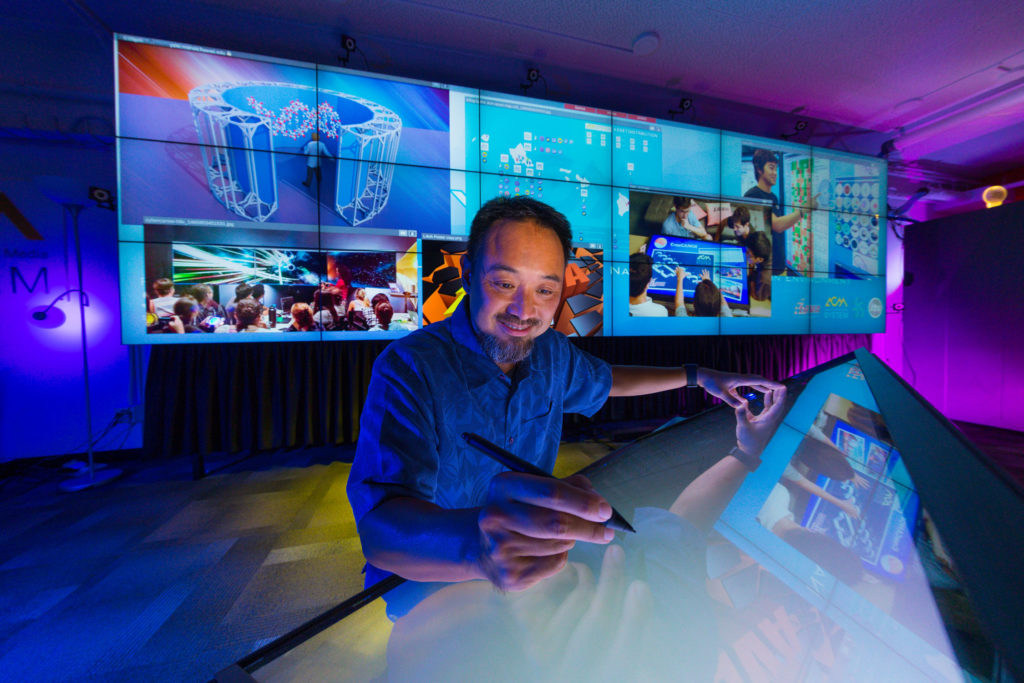
Jason Leigh, Professor/Director,
Laboratory for Advanced Visualization
and Applications (LAVA), UH Mānoa
HUB: Digital Economy and Civil Infrastructure Security
The ability to process and move large quantities of data securely across global networks and to create, manipulate and present content will play a vital role in Hawai‘i’s economy and way of life. The University of Hawai‘i can take the lead in many of these efforts, including:
- Utilizing data visualization to manage, manipulate and interpret large data sets in various scientific disciplines as well as towards simulation and game development.
- Engaging in cybersecurity research, training and workforce development to prevent and mitigate cyber attacks against critical systems in a variety of industries.
- Guiding the expansion of Hawai‘i’s computing capabilities and global connectivity through research in high performance computing.
- Engaging in research to improve the strength and resiliency of digital networks which prevent and mitigate disruption of critical communication and civil infrastructure systems.
- Expanding and coordinating programs in digital and creative media production, which could help diversify Hawai‘i’s economy by empowering its citizens to create, manipulate and present digital content.
- Continuing training and research in disaster preparedness, including better ways to track and minimize the impact of natural and man-made threats, as well as the handling of post-disaster recovery efforts.
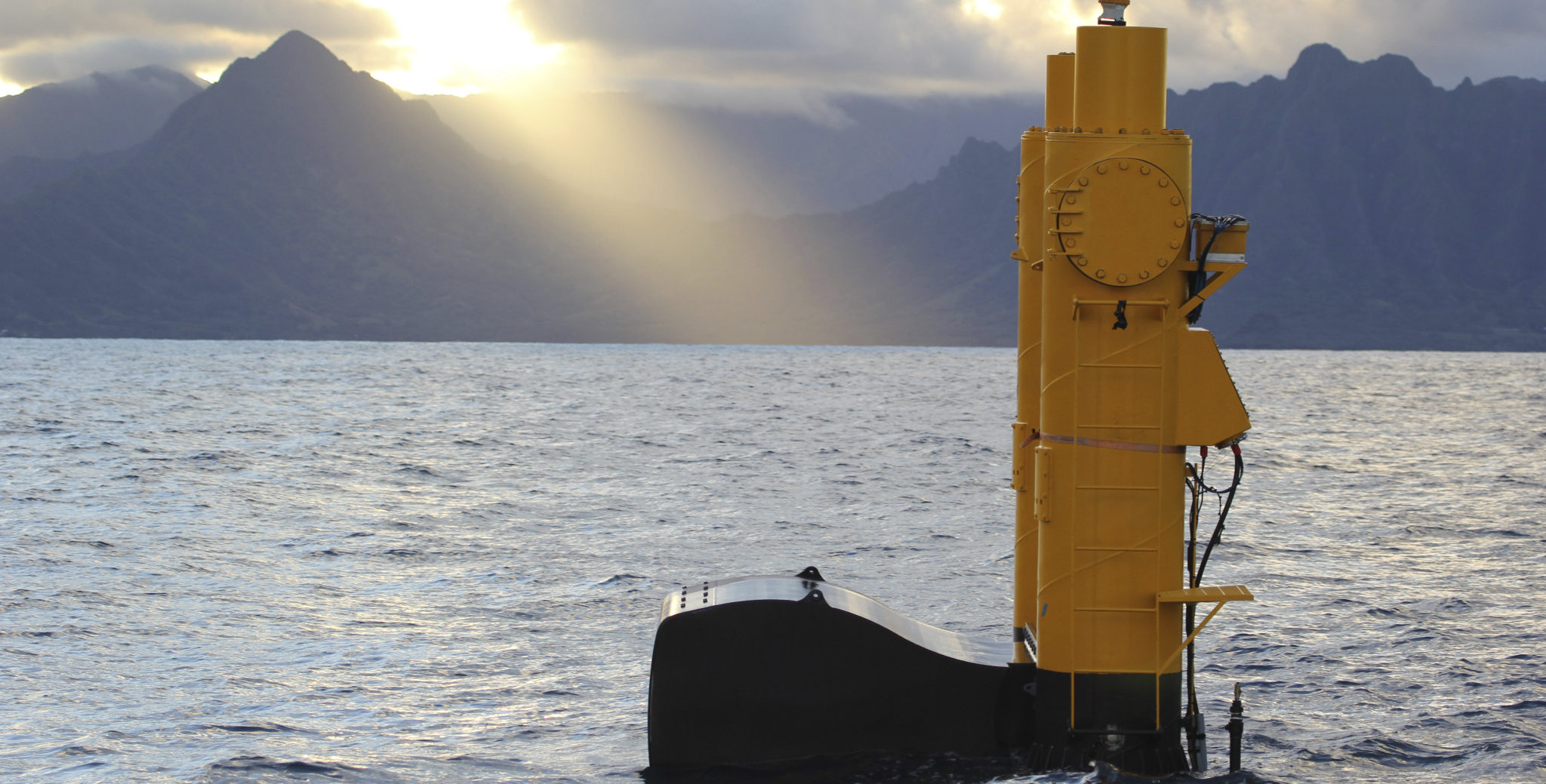
HUB: Sustainable Ecosystems and Energy
Food, water and energy security is very important to a geographically isolated island community like Hawai‘i. The state relies heavily on imported food and oil and has a limited aquifer, so finding solutions to meet current and future needs is vital to the survival of its inhabitants.
The University of Hawai‘i will seek to engage in research and development activities that will help achieve some form of sustainability and inform key decision makers and stakeholders on policies and practices on how it can be accomplished through:
- Utilizing Hawai‘i’s location and natural resources to conduct renewable energy research on various methods like solar power, wave energy, wind, hydrogen, etc.
- Utilizing inter-disciplinary research and indigenous knowledge to identify appropriate sustainable agriculture products to help increase local food production.
- Conducting research in grid optimization and energy storage, which are particularly vital for a place like Hawai‘i that is thousands of miles away from an alternate power grid.
- Conducting research to fill critical gaps in knowledge about water supply.
- Enhancing the living environment of all Hawai‘i’s citizens by protecting the natural and managed ecosystems, and creating sustainable urban environments.
Innovation Workforce
To compete in the local and global workplace, Hawai‘i’s citizens need to be well-educated, well-prepared for work and well-equipped to solve problems. At the same time, they will also need to become more adept in life management skills to achieve the necessary balance and harmony of a healthy and productive member of the workforce.
The University of Hawai‘i will apply new technologies and methods to improve, tailor, expand and increase access to its academic and vocational educational programs to better prepare its students and graduates to enter the workforce by:
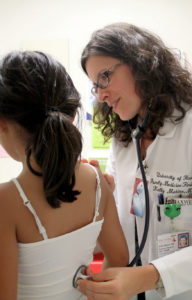
- Utilizing surveys and data mining to become better informed about the workforce needs of government, business, industry and non-profits, as well as graduates to identify emerging personnel needs and critical gaps in knowledge transfer for UH graduates to be work-ready in cybersecurity, energy, nursing and other emerging fields.
- Addressing the state’s critical shortage of doctors and health care professionals by working with the federal and state government, hospitals, and other key stakeholders on increasing graduate medical education and funding for medical residency programs, especially in rural and neighbor island communities.
- Coordinating Science Technology Engineering and Math (STEM) curriculum and vocational education offerings to address workforce needs, enable graduates to enter the workforce at any stage, and assist displaced workers to enter new careers.
- Integrating innovation into educational programs so that UH graduates will gain new knowledge and learn skills to creatively solve problems collaboratively in their chosen field.
- Invigorating professional and vocational programs so that graduates have sound, practical and theoretical, industry-relevant know-how to meet key national or international
qualifications in strategically important fields. - Developing and offering life skills courses to prepare UH students with “real world” skills for thriving in college and beyond. Knowledge and skill development are essential for students to succeed in college and are also necessary to help graduates achieve work-life balance to thrive in the workplace and to sustain well-being in life.
- Developing and offering programs that prepare graduates to be resilient and able to adapt to rapid change in the workplace by acquiring the mindset that learning and acquiring new skills is a lifetime process.
- Expanding and strengthening programs to address underrepresented groups such as Native Hawaiians and Pacific Islanders in college and the innovation workforce.
